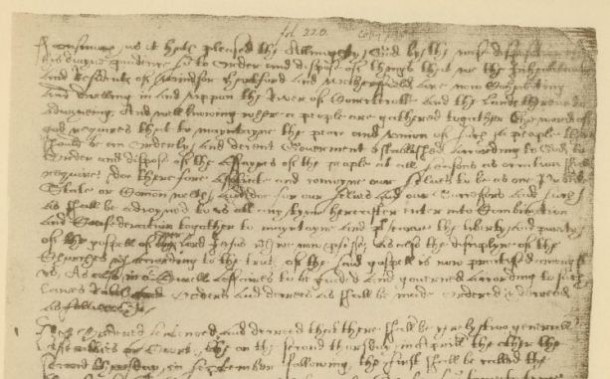It happened today - January 14, 2016
 Let’s hear it for Wethersfield, Windsor, and Hartford. Hip Hip 1639. For on Jan. 14 of that year, representatives of those towns established the first constitution in what would become the United States, the Fundamental Orders of Connecticut. Old habits die hard.
Let’s hear it for Wethersfield, Windsor, and Hartford. Hip Hip 1639. For on Jan. 14 of that year, representatives of those towns established the first constitution in what would become the United States, the Fundamental Orders of Connecticut. Old habits die hard.
New habits, you may correct me, thinking this was a novel approach that led, via various state constitutions, to the Articles of Confederation and the U.S. Constitution, and the enduring American habit of relying on popular sovereignty. But I said old habits and I meant it.
The Englishmen and women who came to the New World, and most pointedly to New England, were not just proudly free. They understood freedom to mean fundamental laws coming from the people limited what governments could do. They would come to understand it in theory partly through the writings of John Locke. But his Second Treatise of Government lay 50 years in the future when these delegates met, debated and voted. They understood it in practice because they were English and the English had always done it that way.
You may quibble that the Mayflower Compact actually predated the Fundamental Orders of Connecticut by 19 years. And it did. But I will quibble back that it was made on board ship not in what would become the United States. Moreover it merely said they would make laws. The Fundamental Orders actually laid out offices and voting procedures. And they were off, with Massachusetts coming up with its Body of Liberties in 1641 and on and on. But they were looking back, not forward.
They were looking back, of course, to Magna Carta, a fundamental framework for governance in England that set explicit limits on what the government could do, regardless of formal procedures employed, limits that protected freedom. If the British eventually drifted from that arrangement, and in a weird way so did we, moving toward the American system formally in 1982 but away from it substantively, and if the Americans lately have suffered a bloated, arrogant and increasingly uncontrollable government despite their system, it does not change the fact that it was a precious heritage that deeply shaped the conduct of the British when they reached the Americas and made their colonial settlements profoundly different from those even of other European powers.
OK, I don’t know where Wethersfield is, though I bet it’s in Connecticut. (Google confirms my guess and says it’s in the Hartford capitol region.) But it’s a legacy worth pondering and reclaiming today. So let’s hear it for Wethersfield, Windsor and Hartford. Hip hip 2016.